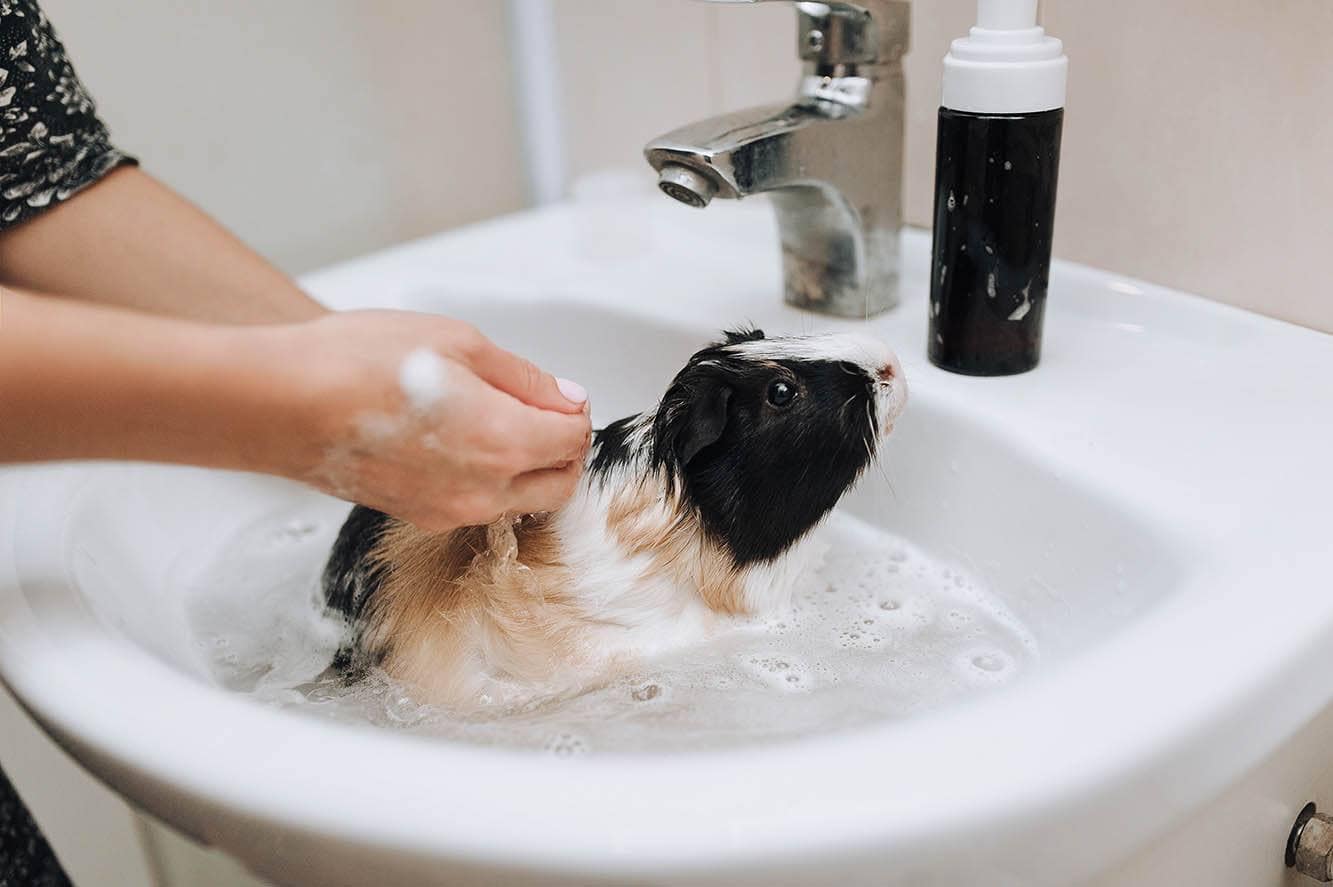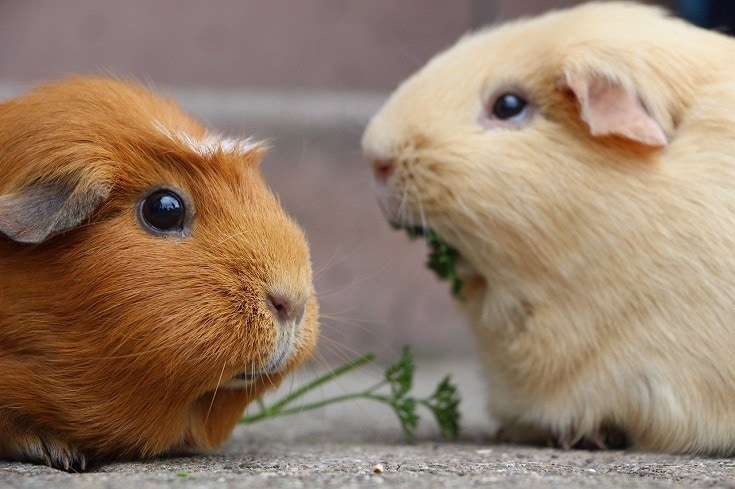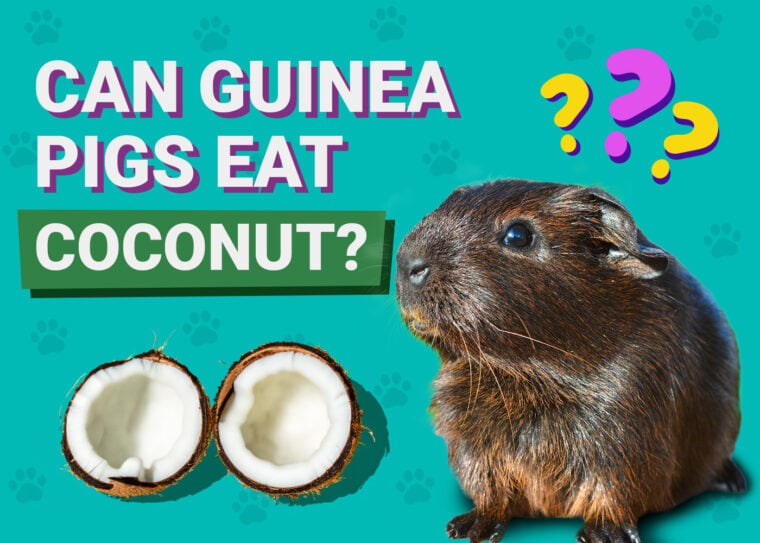
Guinea pigs are adorable pets that can easily become your best sidekick. Like any other pet you bring into your home, your goal is to ensure they get everything needed to live a happy and healthy life. This includes providing your piggie with the best food possible. The routine diet of a guinea pig includes hay, pellets, veggies, and a few fruits. However, it’s important to know which fruits and veggies are safe for your pet.
One fruit most piggie owners consider for their babies is coconut. Can guinea pigs eat coconut? The answer to that question is yes. Natural, raw coconut is a tasty treat for guinea pigs but should only be fed in moderation due to the saturated fat found inside. Let’s take a deeper look at guinea pigs and coconut so you can better determine whether this treat is one you’d like to feed your pet.
Meet the Guinea Pig
Before we dive into what you should feed your guinea pig, let’s learn just a bit about this amazing pet. Guinea pigs, Cavia porcellus, are native to South America and are a domesticated rodent species. We can thank the Incas for domesticating these small rodents, also called cavies, over 3,000 years ago. When this happened, guinea pigs were being used as pets and for food. They were even used by the Incas as sacrifices to their gods. Towards the end of the 16th century, Spanish conquistadors encountered guinea pigs and transported them to Europe. There they became a favorite pet in Elizabethan society. Although cavies aren’t from Guinea and aren’t a species of pig, the guinea pig’s name stuck and is still in use today.
Guinea pigs are tailless rodents that can weigh up to 2 ½ pounds when fully grown. Their little bodies usually measure between 8 to 10 inches long. Like many other rodents, the 13 recognized species of guinea pig have long teeth and need to constantly gnaw to keep them under control. Without this ability, a guinea pig’s teeth could grow too long and cause issues. These little herbivores are social creatures and prefer being with others of their kind. They enjoy a mixed diet where they receive pellets, fresh hay, and guinea pig-safe vegetables and fruits. Cavies also need a constant supply of fresh, clean drinking water available to them in their habitat.
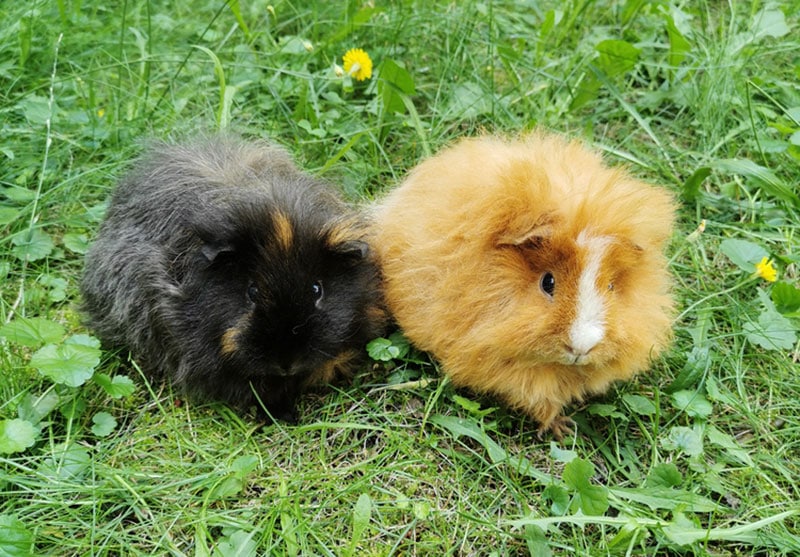
What Is Coconut?
Now that we understand guinea pigs a bit more, let’s take a look at coconut. As most of us know, coconut is a popular fruit around the world. These fruits grow on coconut palm trees and are considered one of the most important crops that grow in the tropics. Each year a coconut palm tree can produce up to 100 coconuts. It also takes up to a year for these coconuts to fully ripen. The outside of a coconut is quite hard and brown. The inside, or flesh of the coconut is white, soft, and very tasty. Humans use coconut often for baking and cooking. You’ll also find lots of other offerings such as coconut milk and coconut water on the market.
Can Guinea Pigs Eat Coconut?
As we said at the beginning of this article, yes, guinea pigs can eat coconut. Like with any fruit, however, they shouldn’t eat too much. Not only do guinea pigs enjoy the taste and texture of the inner flesh, but they also get healthy amounts of fiber, vitamins, and minerals from this fruit. Here’s some information on the average nutritional value of 50 grams of fresh coconut.
| Calories | 175 kcal |
| Fat | 16.5 grams |
| Water | 23 grams |
| Carbohydrates | 7.5 grams |
| Fiber | 4.5 grams |
| Protein | 1.7 grams |
| Potassium | 175 milligrams |
| Phosphorus | 55 milligrams |
| Magnesium | 16 milligrams |
| Sugar | 3.1 grams |
Of course, there is more to coconut than just the inner flesh. Let’s take a quick look at other parts of the coconut to determine whether they are also safe for your guinea pig to enjoy.
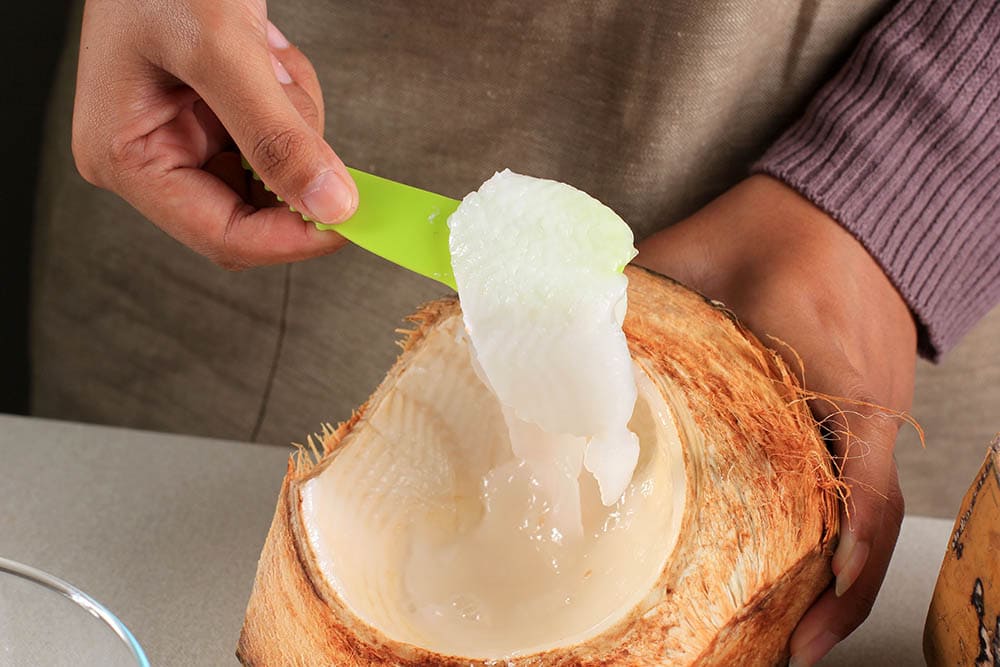
Coconut Water
Like the flesh of a coconut, coconut water also has lots of nutrients inside. Unfortunately, it also contains a heavy amount of potassium and phosphorus. While you can allow your guinea pig to drink coconut water in moderation, it can be argued that the dangers outweigh the benefits that could be provided. While it is up to you whether you go this route, keep in mind that coconut water should only be given occasionally.
Coconut Oil
Coconut oil is potentially helpful for the skin health of your pets thanks to its antibacterial and anti-inflammatory properties. If you want your cavy to receive these benefits you can add a small amount to their diet once or twice a week, but that isn’t the only way coconut oil can be used.
Coconut Milk
If you’re a fan of coconut you’ve most likely tried coconut milk. While it’s tasty, it isn’t a dairy product. Coconut milk is made by grating coconut. This produces a tasty, opaque liquid, which in layman’s terms is simply liquified coconut. This makes it safe for a guinea pig to enjoy but on a limited basis. Offering your cavy a small amount of pure coconut milk once a month shouldn’t cause them issues with adverse effects.
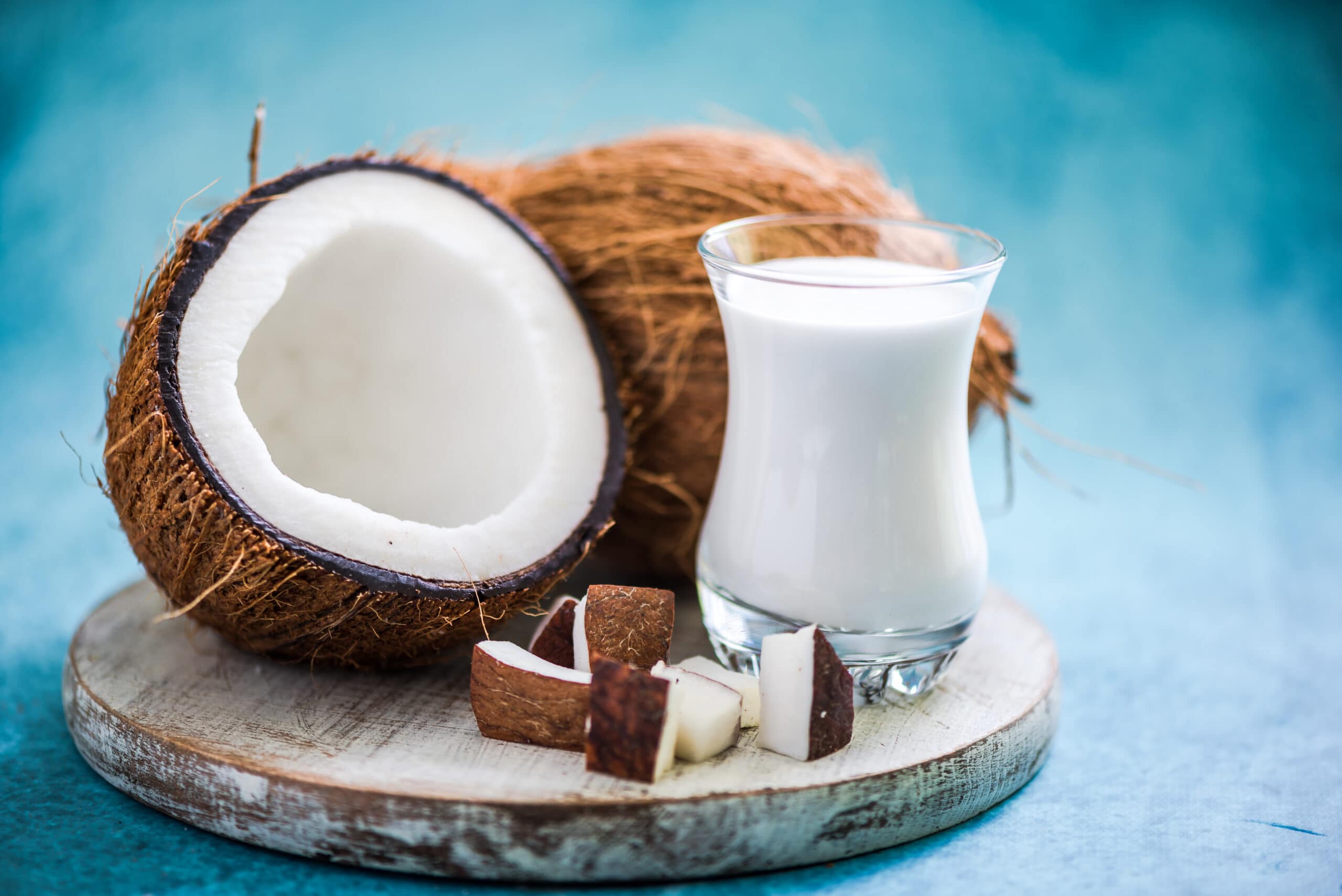
Coconut Shells
While they aren’t toxic, it is best not to allow your guinea pig to eat coconut shells as they can be a choking hazard for such a small animal. However, that doesn’t mean there’s no use for these shells. As we’ve discussed already, guinea pigs need to constantly chew to keep their teeth under control. The husk of a coconut is great for this. You’ll need to closely supervise this activity to ensure your guinea pig doesn’t try to eat any of the shells.
The Benefits of Coconut
Of course, coconut has some great benefits your guinea pig can reap when they are fed this fruit in proper moderation. Let’s take a quick look at those so you can better understand your pet’s relationship with this tasty fruit.

The Risks of Coconut
You’ve most likely noticed that we keep saying to only give coconut to your guinea pig in moderation. Now, we’re going to explain why this is the case. Yes, coconuts are quite healthy. Unfortunately, too much of a good thing can be dangerous, especially for small rodents such as guinea pigs. Here’s a look at a few of the risks associated with feeding your guinea pig too much coconut.
How Much Coconut Is Safe for Your Guinea Pig?
Surely, by now, you’re curious about the phrase “in moderation.” In most cases, it should be safe to allow your guinea pig to enjoy a small piece of coconut once or twice a week. Keep in mind, even the tasty flesh of a coconut can be a choking hazard for your guinea pig, especially if they are a fan of coconut. Always make sure the coconut you offer is fresh and that the piece is small.
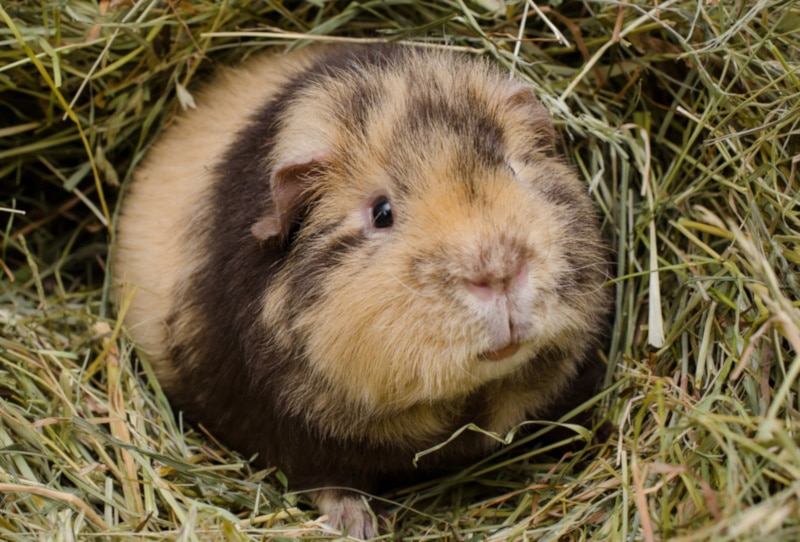
Final Words
If you have a guinea pig as your pet, ensuring they eat right is important. While the majority of their diet should consist of hay and pellets, fruits and veggies can be offered as well. When it comes to coconut, most guinea pigs love it. Coconut also offers a lot of benefits. While yes, coconut is safe for your guinea pig to eat, remember to only offer it occasionally. This will allow your best pal to receive all the benefits and avoid the risks.
Featured Image Credit: Santhosh Varghese, Shutterstock




